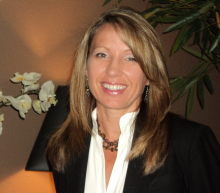Detecting Autism Sooner In Younger Siblings
(Inside Science TV) -- One in 68 children in the U.S. has autism according to the Centers for Disease Control and Prevention. While there is no cure early intervention can make a difference for children with the disorder, and scientists are always looking for new ways to spot it sooner.
When twins Chris and Alex were just babies, their mom, Nina Sanchez, saw the signs.
"I just knew something was different about them … just these repetitive behaviors … and their speech was delayed," said Sanchez.
Both boys were diagnosed with autism. When their twin sisters Emma and Tessa came along, Sanchez was worried the girls would have the disorder too.
"I was really freaked out. I really didn’t know what to do," said Sanchez. So she enrolled the girls in a trial that examined younger siblings of children with autism.
"If you have a child with autism, it makes it more likely, one in five, that an additional child will have the disorder," said Daniel Messinger, a psychologist at the University of Miami in Coral Gables, Florida.
Researchers found the lack of certain communication behaviors in siblings can predict future autism symptoms.
"In our paper, we were finding them at 8 months of age," Messinger said.
For the study, the researchers looked at 40 high-risk and 21 low-risk siblings. They studied the babies until they were two and a half and found that 10 of them had an autism spectrum disorder.
One of the most important indicators that a child is not at risk is that he or she exhibits behavior called "initiating joint attention" or playing with an object and sharing it.
Kids who scored low on this type of communication were more likely to show autism symptoms by age three.
"It's so important to get these kids early, so that if they're showing signs that may develop into symptoms of autism, we can intervene with them," explained Messinger.
The scientists will continue to follow the children involved in the study for several more years.
Sanchez learned that her girls did not have the disorder, and was thankful that they were not going to have to face the same challenges as their brothers.

